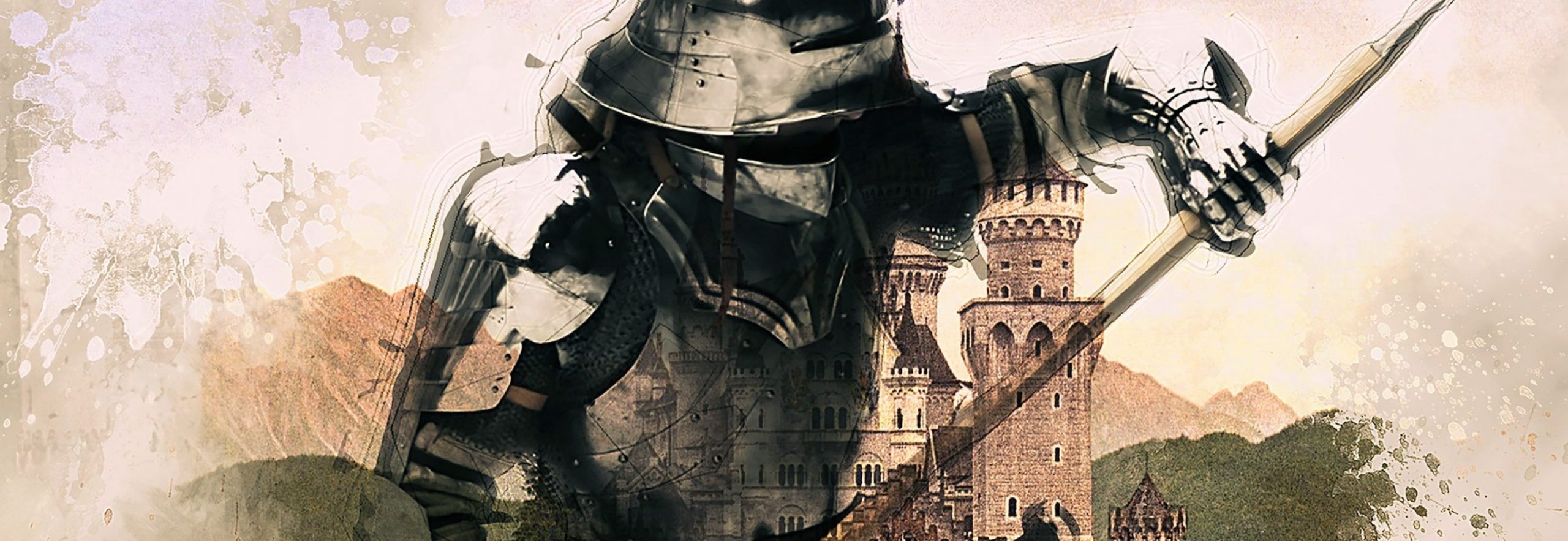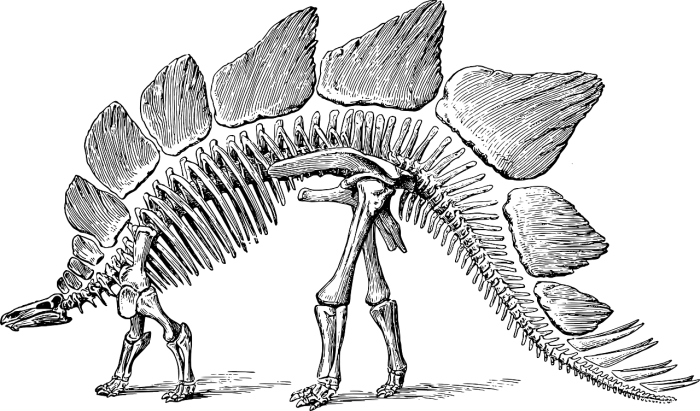I have seen more and more Christian leaders, some of them pastors or leaders of large, respected Christian organizations, coming out in favor of evolution. Granted, they believe that it was God who did it all, which would put them squarely in the “theistic evolution” camp. But for whatever reason, they choose to embrace evolution, and in many cases actually believe that the science compels them.
Now, I will never decry the Christian faith of a person merely because of his or her view on evolution. One specific pro-evolution pastor I’m thinking of happens to be one of my favorite Christian teachers, and He unquestionably has the heart of Jesus toward those around him. The Bible is clear that one’s opinion concerning biological evolution has nothing to do with his or her salvation. In this pastor’s defense, he also does not make it an issue of salvation.
But while I refuse to make evolution a litmus test for the Kingdom, nevertheless I have to question why one would choose to believe something with absolutely no scientific basis?
“What???” you may say, “I thought these scientists actually had some kind of proof to believe what they believe about the reality of biological evolution.”
Well, then, you need to read a book by John Lennox called “God’s Undertaker: Has Science Buried God?” Lennox is a professor of applied mathematics at Oxford University, and is a strong Christian. He’s a brilliant thinker, and in his book he effectively shoots the theory of evolution down in spectacular flames.
His book is not only about evolution, it’s about science and what the scientific community says about God. Here I have compiled nothing but a few quotes from his book, only from Chapter 6 which deals specifically with evolution. Please keep in mind that many of these quotes come from atheistic evolutionists, which makes it even more a mystery why they continue to cling to the theory of evolution. All the quotes below are copied directly from “God’s Undertaker”:
“Large evolutionary innovations are not well understood. None has ever been observed, and we have no idea whether any may be in progress. There is no good fossil record of any.” Robert Wesson [Stanford].
“Patterson’s [Colin Patterson, evolutionist and author] description highlights something very easily overlooked – the fact that natural selection is not creative. As he says, it is a ‘weeding out process’ that leaves the stronger progeny. The stronger progeny must be already there: it is not produced by natural selection. Indeed the very word ‘selection’ ought to alert our attention to this: selection is made from already existing entities. This is an exceedingly important point because the words ‘natural selection’ are often used as if they were describing a creative process, for instance, by capitalizing their initial letters. This is highly misleading.”
“Selection has no innovative capacity: it eliminates or maintains what exists. The generative and ordering aspects of morphological evolution are thus absent from evolutionary theory.”
“Müller [Gerd Müller, evolutionist] thus confirms what logic and even language would tell us: natural selection, by its very nature, does not create novelty. This flatly contradicts Richard Dawkins’ bold assertion cited earlier that natural selection accounts for the form and existence of all living things.”
“Convinced Darwinists, John Maynard Smith and E . Szathmary, take a similar line : ‘There is no theoretical reason that would permit us to expect that evolutionary lines would increase in complexity with time ; there is also no empirical evidence that this happens.’ ”
“In his book [Pierre] Grassé [biologist] observed that fruit flies remain fruit flies in spite of the thousands of generations that have been bred and all the mutations that have been induced in them. In fact, the capacity for variation in the gene pool seems to run out quite early on in the process, a phenomenon called genetic homeostasis. There appears to be a barrier beyond which selective breeding will not pass because of the onset of sterility or exhaustion of genetic variability. If there are limits even to the amount of variation the most skilled breeders can achieve, the clear implication is that natural selection is likely to achieve very much less.”
“More recent work on the E. coli bacterium backs this up. In this research no real innovative changes were observed through 25,000 generations of E. coli bacteria. Biochemist Michael Behe points out that now more than 30,000 generations of E. coli have been studied, equivalent to about a million human years, and the net result is that evolution has produced: ‘Mostly devolution. Although some marginal details of some systems have changed during that thirty thousand generations, the bacterium has repeatedly thrown away chunks of its genetic patrimony, including the ability to make some of the building blocks of RNA. Apparently throwing away sophisticated but costly molecular machinery saves the bacterium energy. Nothing of remotely similar elegance has been built. The lesson of E. coli is that it’s easier for evolution to break things than to make things.”
“Fred Hoyle’s conclusion to his mathematical arguments is characteristically blunt: ‘Well, as common sense would suggest, the Darwinian theory is correct in the small, but not in the large. Rabbits come from other slightly different rabbits, not from either [primeval] soup or potatoes.’ Where they come from in the first place is a problem yet to be solved, like much else of a cosmic scale.”
“The impression that microevolution is limited in its scope is confirmed by the comments of Wesson and others to the effect that the fossil record gives no good examples of macroevolution. This will sound surprising to many people since it is a widespread public impression that one of the most powerful evidences for evolution comes from the fossil record. And yet this impression does not correspond to all that is to be found in the scientific literature. Indeed, at the outset, some of Darwin’s strongest objectors were paleontologists. He himself gives us the reason for this; it concerns the absence of the transitional forms in the fossil record, which his theory led him to expect. He wrote in The Origin of Species: ‘The number of intermediate varieties, which have formerly existed on the earth, [should] be truly enormous. Why then is not every geological formation and every stratum full of such intermediate links? Geology assuredly does not reveal any such graduated organic chain; and this, perhaps is the most obvious and gravest objection which can be urged against my theory.’”
“Zoologist Mark Ridley comments on the situation: ‘The fossil record of evolutionary change within single evolutionary lineages is very poor. If evolution is true, species originate through changes of ancestral species: one might expect to be able to see this in the fossil record. In fact it can rarely be seen. In 1859 Darwin could not cite a single example.”
“Palaeontologist David Raup of the Field Museum of Natural History, which houses one of the largest fossil collections in the world, said: ‘We are now about 120 years after Darwin and the knowledge of the fossil record has been greatly expanded. We now have a quarter of a million fossil species, but the situation hasn’t changed much. The record of evolution is still surprisingly jerky and, ironically, we have even fewer examples of evolutionary transition than we had in Darwin’s time.’”
“Stephen Jay Gould said, ‘The extreme rarity of transitional forms in the fossil record persists as the trade secret of palaeontology.’ His fellow palaeontologist, Niles Eldredge of the American Museum of Natural History, adds: ‘When we do see the introduction of evolutionary novelty, it usually shows up with a bang, and often with no firm evidence that the fossils did not evolve elsewhere. Evolution cannot forever be going on somewhere else. Yet that’s how the fossil record has struck many a forlorn palaeontologist looking to learn something about evolution. Eldredge makes an astonishing admission. ‘We palaeontologists have said that the history of life supports [the story of gradual adaptive change] knowing all the while it does not.’”
“What, then, does the fossil record reveal? Gould wrote: ‘The history of most fossil species includes two features particularly inconsistent with the idea that they gradually evolved: Stasis. Most species exhibit no directional change during their tenure on earth. They appear in the fossil record looking pretty much the same as when they disappear; morphological change is usually limited and directionless. Sudden appearance. In any local area a species does not arise gradually by the steady transformation of its ancestors; it appears all at once and fully formed.’”
“Eldredge: I found that out back in the 60s as I tried in vain to document examples of the kind of slow directional change we all thought ought to be there ever since Darwin told us that natural selection should leave precisely such a tell-tale signal… I found instead that once species appear in the fossil record they tend not to change very much at all. Species remain imperturbably, implacably resistant to change as a matter of course – often for millions of years.’”
“This verdict, which is so strikingly at odds with the popular understanding of fossils, is supported by Colin Patterson, FRS: ‘I will lay it on the line – there is not one such fossil [a fossil which is ancestral or transitional] for which one could make a watertight argument.’
[Colin Patterson was a British palaeontologist at the Natural History Museum in London].”

